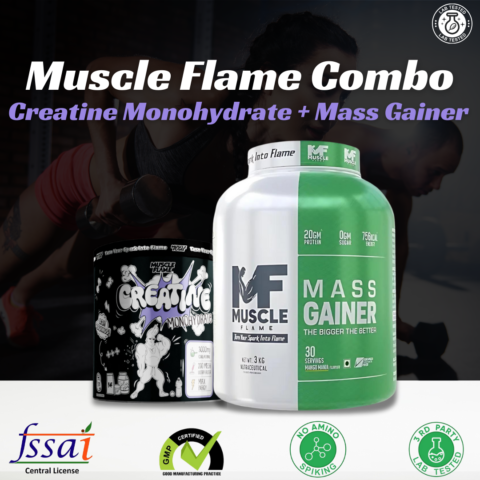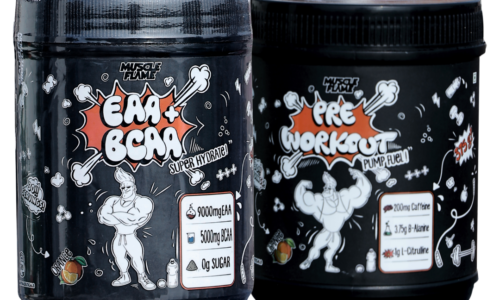
A Look into the Differences, Benefits, and Risks of Natural and Synthetic Supplements
In today’s health-conscious world, dietary supplements have become a popular means of boosting nutrition, addressing deficiencies, and supporting overall well-being. But not all supplements are created equal. They generally fall into two categories: natural and synthetic. While both types aim to provide essential nutrients, they differ significantly in their origins, processing, efficacy, and potential risks. Understanding these distinctions is crucial for making informed choices regarding your health. This article provides an in-depth exploration of the differences between natural and synthetic supplements, their benefits, and the associated risks, allowing you to decide which might be better suited to your needs.
Supplements are designed to fill nutritional gaps, enhance bodily functions, and promote health. However, the debate over the superiority of natural versus synthetic supplements is ongoing. Some consumers lean toward natural products, believing them to be safer and more effective. Others see synthetic supplements as more convenient, affordable, and consistent in quality. But which is truly better? Let’s take a comprehensive look into both.
Understanding Natural Supplements
Natural supplements are derived from whole food sources such as plants, animals, or minerals. These products typically undergo minimal processing to retain the nutrient composition as close as possible to its original form. Examples include fish oil for omega-3s, vitamins extracted from fruit, or herbal extracts like echinacea or ginseng.
How Are Natural Supplements Made?
Natural supplements are created by extracting nutrients from foods and herbs. For example, vitamin C can be extracted from acerola cherries, while fish oil is sourced from fatty fish like salmon or mackerel. These extracts are then minimally processed and sometimes combined with other natural substances to maintain their bioactive properties. The key goal with natural supplements is to preserve the complex matrix of vitamins, minerals, and phytonutrients as they occur in their original source, providing a more holistic approach to nutrition.
The Appeal of Natural Supplements
Many people gravitate toward natural supplements because they prefer consuming nutrients that are as close to their natural state as possible. They believe that natural supplements are more easily recognized and absorbed by the body, resulting in greater efficacy. Additionally, the perception that natural products are free from harmful chemicals and additives often contributes to their popularity.
Understanding Synthetic Supplements
Synthetic supplements, on the other hand, are created in a laboratory setting. These nutrients are chemically manufactured to mimic the molecular structure of the vitamins and minerals found in nature. For example, synthetic vitamin C (ascorbic acid) is often produced from corn glucose through a series of chemical processes. Most multivitamins available on the market are synthetic because they are easier and cheaper to produce on a large scale.
How Are Synthetic Supplements Made?
Synthetic supplements are made by replicating the molecular structure of nutrients through chemical processes. These nutrients are often created from petroleum-based products, acids, and other chemical compounds. Although synthetic supplements aim to provide the same nutrients as their natural counterparts, the end product is often isolated and lacks the additional phytonutrients and compounds present in whole food sources.
The Appeal of Synthetic Supplements
Synthetic supplements are typically more affordable and widely available than natural supplements. They also provide consistency in dosage and quality, which can be appealing for consumers who want precise control over their nutrient intake. Synthetic vitamins and minerals are often included in multivitamin tablets, making them a convenient option for those seeking to meet multiple nutritional needs in one go.
Key Differences Between Natural and Synthetic Supplements
Understanding the differences between natural and synthetic supplements is essential for choosing the right product for your health needs. Let’s explore the key distinctions that set them apart:
Source and Processing
The most significant difference between natural and synthetic supplements is the source of their ingredients. Natural supplements are derived from whole food sources, while synthetic supplements are created through chemical synthesis. This difference can influence how the body processes and absorbs these nutrients.
Natural supplements often come with additional phytonutrients, enzymes, and cofactors that are absent in synthetic supplements. These compounds can enhance nutrient absorption and offer added health benefits, something synthetic supplements may not provide.
Bioavailability and Absorption
Bioavailability refers to how well a nutrient is absorbed and utilized by the body. In many cases, natural supplements are believed to have better bioavailability because they are accompanied by other naturally occurring compounds that aid in their absorption. For example, vitamin E from natural sources is more easily absorbed and utilized by the body compared to its synthetic counterpart.
Synthetic supplements, however, provide precise and standardized dosages of nutrients, which can be beneficial for people with specific deficiencies. But in some cases, synthetic nutrients may not be as bioavailable, meaning that the body absorbs less of the nutrient than it would from a natural source.
Complex Nutrient Matrix
Natural supplements often contain a complex matrix of nutrients. For instance, a vitamin C supplement sourced from acerola cherries may include bioflavonoids, carotenoids, and other phytonutrients that work together to boost absorption and efficacy. Synthetic supplements, on the other hand, typically isolate a single nutrient and do not offer this nutrient synergy.
Efficacy
The efficacy of natural versus synthetic supplements can vary depending on the nutrient in question. In some cases, synthetic supplements may provide comparable benefits to natural ones, but in other cases, the natural form is significantly more effective. For example, natural vitamin E (d-alpha-tocopherol) is considered more potent than its synthetic counterpart (dl-alpha-tocopherol). Similarly, natural folate (from foods like spinach) is more readily utilized by the body than synthetic folic acid.
The Benefits of Natural Supplements
Natural supplements are often favored for their perceived purity and holistic approach to health. Here are some of the key benefits:
Better Bioavailability
As mentioned earlier, natural supplements often have better bioavailability, meaning the body can more easily absorb and use the nutrients. This is particularly true for vitamins like vitamin E and vitamin C, where natural forms tend to outperform synthetic versions in terms of absorption.
Additional Nutrients
Natural supplements don’t just provide isolated vitamins or minerals; they also come with other beneficial compounds such as antioxidants, enzymes, and phytonutrients. These additional components can enhance the overall effectiveness of the supplement and provide broader health benefits.
Fewer Additives and Chemicals
Natural supplements typically have fewer artificial additives, preservatives, or coloring agents compared to their synthetic counterparts. Many consumers appreciate the “clean label” aspect of natural supplements, which is often associated with higher-quality and more environmentally friendly practices.
The Benefits of Synthetic Supplements
While natural supplements have their advantages, synthetic supplements offer their own unique benefits:
Consistency in Dosage
Synthetic supplements are manufactured to provide precise, standardized dosages of nutrients. This makes it easier for consumers to know exactly how much of a particular nutrient they are consuming, which can be particularly important for individuals with specific nutrient deficiencies or those requiring therapeutic doses.
Affordability
Because synthetic supplements are easier and cheaper to produce, they tend to be more affordable than natural supplements. This makes them accessible to a broader population, which is particularly important in areas where nutrient deficiencies are common.
Convenience
Many synthetic supplements, such as multivitamins, offer a wide range of nutrients in a single tablet or capsule. This convenience appeals to individuals looking for an easy way to meet their daily nutritional requirements without having to take multiple pills or supplements.
The Risks of Natural Supplements
Despite their benefits, natural supplements are not without risks. It’s important to be aware of these potential downsides when choosing natural products:
Inconsistency in Nutrient Levels
Since natural supplements are derived from whole food sources, the nutrient levels can vary from batch to batch. This inconsistency can make it challenging to determine the exact dosage of nutrients, which may be problematic for individuals who need a specific amount of a particular vitamin or mineral.
Higher Cost
Natural supplements are often more expensive due to the complex extraction processes required to obtain nutrients from whole food sources. This higher cost can be a barrier for some consumers, especially when long-term supplementation is needed.
Potential for Contamination
Natural supplements may carry a risk of contamination if they are sourced from areas with high levels of pollutants or pesticides. Without proper regulation, some natural supplements could contain heavy metals, chemicals, or other harmful substances.
The Risks of Synthetic Supplements
Similarly, synthetic supplements have their own set of risks:
Lower Bioavailability
In many cases, synthetic supplements are not as bioavailable as their natural counterparts. This means the body may absorb less of the nutrient, rendering the supplement less effective.
Potential for Overdose
Because synthetic supplements offer highly concentrated doses of nutrients, there is a higher risk of overdosing on certain vitamins or minerals. Fat-soluble vitamins like A, D, E, and K are particularly concerning because they can build up in the body and lead to toxicity if taken in excessive amounts.
Artificial Additives
Many synthetic supplements contain artificial additives, preservatives, and fillers that may not be necessary or beneficial for health. Some individuals may experience adverse reactions to these additives, especially if they have sensitivities or allergies.
Choosing the Right Supplement for You
Ultimately, the choice between natural and synthetic supplements depends on your individual health needs, preferences, and budget. It’s essential to consider factors such as bioavailability, potential side effects, and the overall quality of the supplement.
Consulting with a Healthcare Professional
Before starting any supplement regimen, it’s always a good idea to consult with a healthcare professional. They can help determine which nutrients you may need and whether a natural or synthetic supplement would be most appropriate for your situation.
FAQs
What are natural supplements made from?
Are synthetic supplements harmful?
Which is better for absorption: natural or synthetic supplements?
Can I overdose on synthetic supplements?
Why are natural supplements more expensive?
Are all multivitamins synthetic?
Conclusion
Both natural and synthetic supplements offer distinct advantages and risks, and neither is inherently superior to the other. Natural supplements may provide better bioavailability and additional health benefits due to their complex nutrient composition, but they are often more expensive and can vary in potency. Synthetic supplements, while convenient and affordable, may not be as easily absorbed and carry a higher risk of overdose. Ultimately, your decision should be based on your specific health needs, dietary preferences, and professional advice.




















